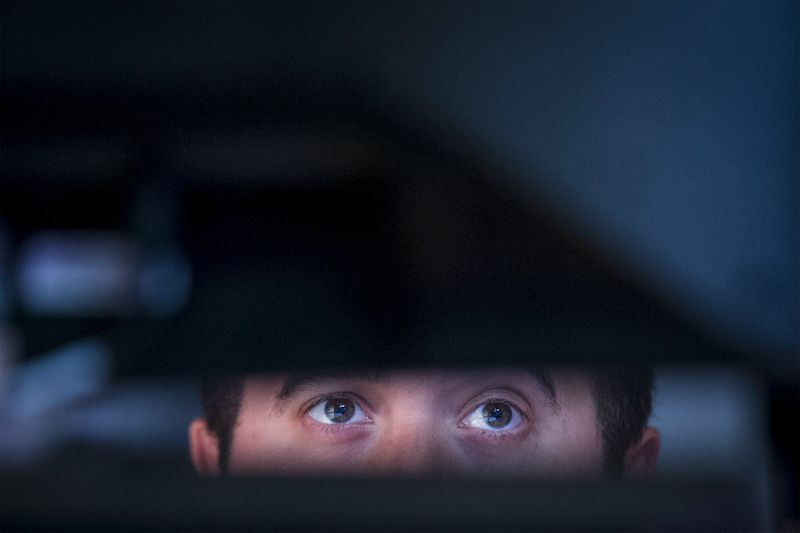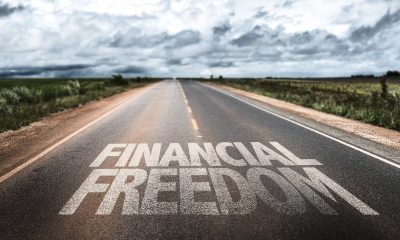Investing
Fly responsibly? Airlines face a storm over climate claims

© Reuters. Campaign leader Hiske Arts speaks during a meeting of climate group Fossielvrij Nederland (Fossil Free Netherlands) at their office in Amsterdam as Fossil Free is suing Dutch airline KLM over advertisements such as KLM’s “Fly Responsibly” campaign, arguin
2/3
By Toby Sterling and Joanna Plucinska
AMSTERDAM/LONDON (Reuters) – When Dutch airline KLM launched adverts urging customers to “fly responsibly” and think about the environmental impact before booking a flight, it said it was showing its commitment to a sustainable future.
But the 2019 campaign sparked criticism and last year environmental activists filed a suit accusing the company of “greenwashing”, or making misleading environmental claims.
The case filed by Fossil Free Netherlands highlights the dilemma facing airlines as they try to boost growth for shareholders but also convince the public they are taking steps to cut carbon emissions.
Critics say those messages can’t be reconciled, and a growing number of lawsuits, consumer complaints, and rulings from advertising regulators are seeking to restrict what sustainability claims airlines should be allowed to make.
“The only way to fly responsibly right now is not to fly,” said Hiske Arts, who is leading the campaign by Fossil Free Netherlands.
KLM, which is fighting the suit – one of the most prominent among the legal challenges facing airlines, says it intends to be an industry leader in cutting emissions and communicating about sustainability.
“We are pulling out all the stops,” a spokesperson said.
KLM is due to file its first official response at the Amsterdam district court by Sept. 27. That will be followed by a court hearing on Dec. 6.
In June, European consumer rights body BEUC lodged a complaint at the European Commission against 17 airlines, alleging they use terms such as “sustainable”, “responsible” and “green” deceptively.
“The reason we picked airlines is probably because it’s one of the most emblematic sectors in terms of greenwashing,” said campaign leader Dimitri Vergne. He said technologies for low-emission flights either don’t exist or are years away from commercialisation.
BUSINESS RISK
The stakes are high. KLM’s owner, Air France-KLM, said in its 2022 annual report that damage to its environmental reputation was a business risk that could lead to it losing public or political support.
On Sept. 1, the Dutch government said it planned to cap flights at Schiphol Airport, KLM’s base, at 9.5% below 2019 levels, primarily to reduce noise pollution, but also in light of goals to cut emissions.
Air France-KLM and other airlines plan to contest the decision at the European level.
Responding to Reuters questions, KLM said aviation was a “hard to abate” sector in terms of emissions, but that it planned to meet 2030 climate targets by buying more efficient planes and gradually using more biofuel.
KLM says its customers want to fly and helping them do so is the reason it exists. In preliminary hearings, its lawyers argued “fly responsibly” ads were well-intentioned. The ads suggested customers should consider purchasing carbon offsets or taking the train.
In June, the court ruled the suit could proceed, with a verdict expected in February.
KLM says it has already discontinued 19 communications it says form the core of the Fossil Free suit.
Its “fly responsibly” web page now re-routes customers to a message that reads: “Air travel is currently not sustainable. Check what we are doing to improve.”
Hiske Arts of Fossil Free said any airline ads that reference the environment are intended to increase demand for flying by persuading people that flying is not a problem.
Saying one airline is planting trees or that one is less polluting than another is misleading when every flight for years to come will emit carbon dioxide, she said.
“You can’t say that you are more sustainable if the essence is that you are still very polluting,” Arts said.
She said aviation should be treated like the tobacco industry: ads should be banned, and tickets should carry a warning.
Airlines reject comparisons with tobacco, saying flying has clear economic benefits that smoking does not.
CLARITY
In Brussels, industry group Airlines for Europe says carriers must be allowed to publicly demonstrate their progress.
“We’re a little bit in limbo, when it comes to, you know, what can we say?” said Deputy Managing Director Laurent Donceel.
European regulators are working on updated rules for all businesses, including a review of law on commercial practices and a new green claims directive.
While advertising authorities have banned some ads, they say airlines should be allowed to discuss improvements in order to prevent “greenhushing”, or allowing the issue to disappear from discussion.
“We need to keep the interest of consumers first, but we need to strike the right balance as well,” said Lucas Boudet, director general of the European Advertising Standards Association.
Read the full article here

-

 Side Hustles3 days ago
Side Hustles3 days agoWhy the Best CEOs Think Like Anthropologists
-

 Side Hustles6 days ago
Side Hustles6 days agoLA Rental Prices Skyrocketing Despite Price Gouging Laws
-

 Make Money4 days ago
Make Money4 days agoEarn More in 2025: Top 10 High-Yield Savings Accounts Revealed
-

 Side Hustles6 days ago
Side Hustles6 days agoHow to Craft Marketing Campaigns That Reach Multiple Generations
-

 Side Hustles4 days ago
Side Hustles4 days agoWhat to Do If TikTok is Banned — How to Protect Your Brand
-

 Make Money5 days ago
Make Money5 days agoBuild Your Future: 5 Simple Steps to Financial Stability
-

 Side Hustles4 days ago
Side Hustles4 days ago10 Roles That Are Surprisingly Well-Suited for Outsourcing
-

 Side Hustles5 days ago
Side Hustles5 days agoMeta Is Laying Off 5% of Its Workforce: Read the Memo


















